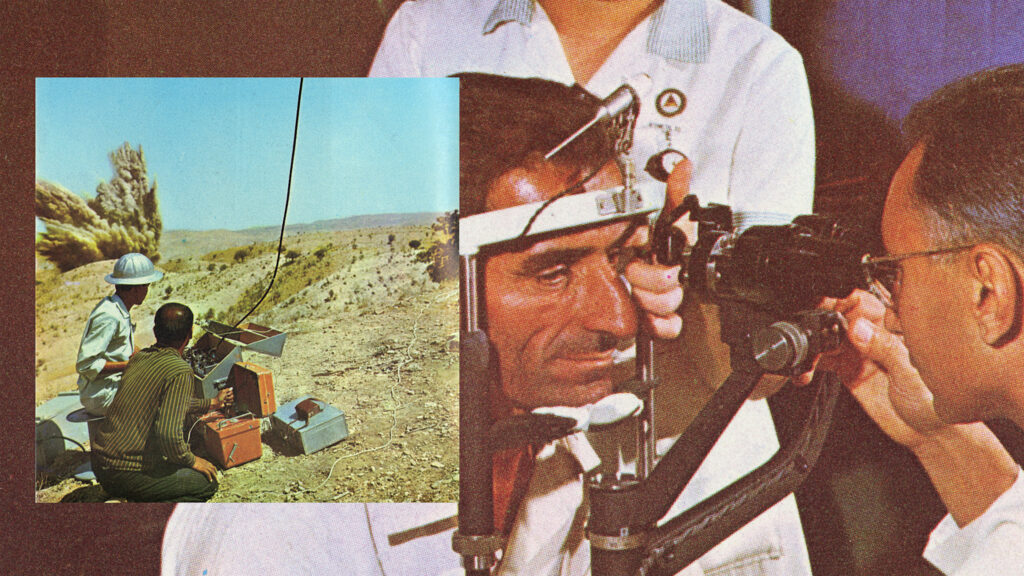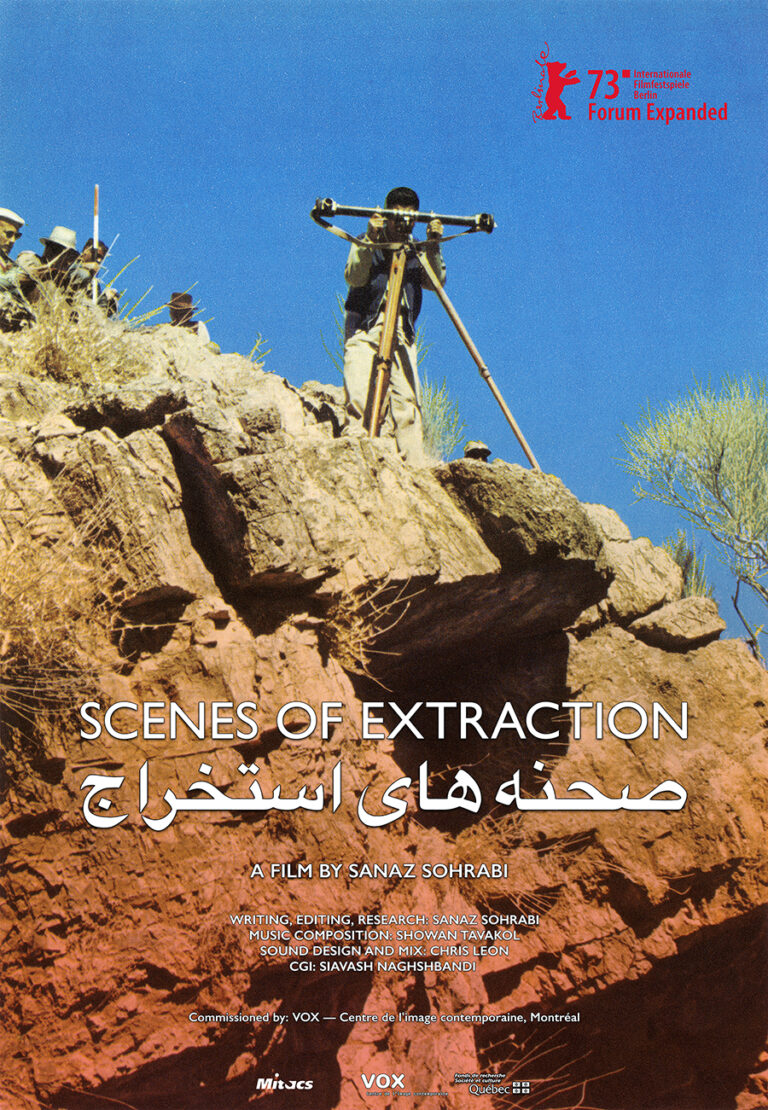Below are some questions posed to director Sanaz Sohrabi about her competition film Scenes of Extraction.
What kind of work have you done on archive materials for your film?
I am always “rematerializing” the archival films and photographs I work with. That includes printing the photographs and re-filming them, making digital collages, creating overlaps and juxtapositions, and thinking with the negative and positive spaces that I create through collages. I think a lot about working with the archives as a form of encounter or a form of contact zone, that is affective, material, and historical.This process of re-filming, re-printing, and creating digital collages is also another form of encounter. In Scenes of Extraction, with the help of my amazing CGI designer (Siavash Naghshbandi) I created CGI geological renderings that were made from the archival air surveys and early photogrammetry surveys which were captured across the Iranian oil belt. These archival film footage and photographs were fed into different software to create an impartial and incomplete spatial rendering of the oil fields and the results were really fascinating. It was about revisiting these geological imaginaires which were at the time deemed to be highly technical and encompassing and utopic but in reality were highly destructive and impartial.
Can you tell us more about how amateur footage of geological measurements shows ethnographic, anthropological, and social implications?
These amateur footage offer a very different perspective on the relationship between the colonial and colonized. We see how the amateur camera is always present and in such close proximity to local workers, their families, social events, and in different geological camps which we may not be able to access via the official documentation of British Petroleum. The official camera of the oil company had an alienating and abstracting effect that would often result in erasure of the labour dynamics. In these amateur footage we have a raw account of the colonial exchange that is most certainly more violent and unfiltered. The footage is not fully tailored according to the oil company’s official propaganda but it carries its own ideological footprint and synergies of power.
Would you suggest to young people and to a new audience a few titles of found footage and/or experimental films that have been pivotal for you?
I highly suggest Mother Dao, A Turtlelike Directed by Vincent Monnikendam, The Halfmoon Files directed by Philip Scheffner, and Kamal Aljafari’s An Unusual Summer.

